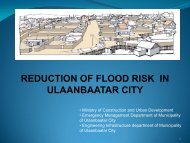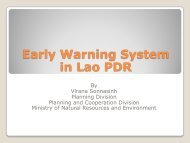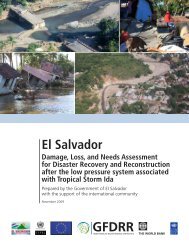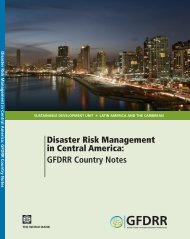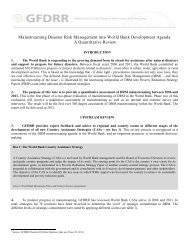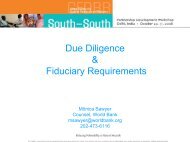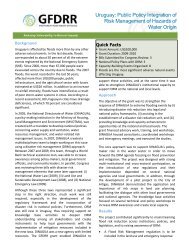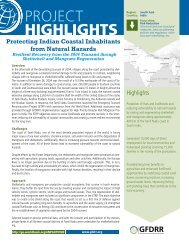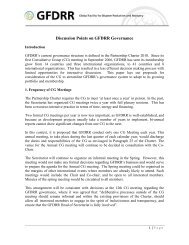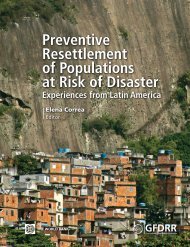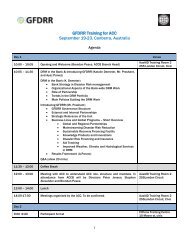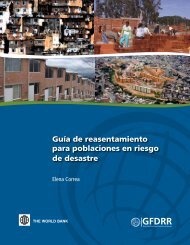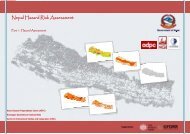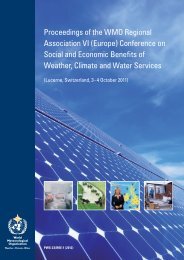Haiti Earthquake Reconstruction Knowledge Notes from ... - GFDRR
Haiti Earthquake Reconstruction Knowledge Notes from ... - GFDRR
Haiti Earthquake Reconstruction Knowledge Notes from ... - GFDRR
You also want an ePaper? Increase the reach of your titles
YUMPU automatically turns print PDFs into web optimized ePapers that Google loves.
38 | <strong>Haiti</strong> <strong>Earthquake</strong> <strong>Reconstruction</strong><br />
Rebuild or Relocate<br />
In the aftermath of a disaster, a lack of clarity in land title systems can significantly delay the reconstruction<br />
of housing and infrastructure, and lead to conflict. The land tenure system in pre-earthquake<br />
<strong>Haiti</strong> faced challenges and in the post earthquake context, poses serious risks for reconstruction. It<br />
is important that land title, access, use, and pricing issues be addressed up-front, as was the case in<br />
Aceh. The development of short-term solutions to facilitate the process (again, the Aceh model) may<br />
be considered, followed by a broader, longer-term review and if necessary, reform and upgrading of<br />
existing systems.<br />
Key Decision Points<br />
1. Develop a legal framework to address land<br />
acquisition and occupation for immediate<br />
reconstruction needs.<br />
2.<br />
3.<br />
4.<br />
5.<br />
Address the diverse categories of affected<br />
people.<br />
Include gender considerations.<br />
Consider forms of proof of ownership<br />
other than existing formal land title.<br />
Revisit a second phase considering broader<br />
systemic strengthening and reform.<br />
6. Involve communities to strengthen buy-in<br />
and promote success.<br />
A legal framework to address land acquisition<br />
and occupation should be developed for immediate<br />
reconstruction needs. Land may be in<br />
short supply in the reconstruction process. In fact,<br />
the Aceh experience shows, post disaster conditions<br />
are usually cramped. Land tenure issues are<br />
likely to arise in the near term, as people tire of<br />
waiting for tents and begin to return to the sites of<br />
the former homes to rebuild. An immediate priority<br />
of property owners will be to re-establish ownership<br />
of their land. Specific mechanisms to fast<br />
track the allocation of public land for recovery and<br />
reconstruction activities might be considered. i<br />
The diverse categories of affected people will<br />
need to be addressed. Pre-earthquake informal<br />
settlers as well as post-earthquake squatters<br />
should be provided with viable alternatives. Squatters’<br />
claims to public land should be assessed as<br />
part of the process. As tent cities and new rural<br />
residences consolidate over time, the gray area between<br />
“temporary” and “permanent” shelter, and<br />
its land tenure implications, should be considered.<br />
Gender considerations should be included.<br />
The international best practice of issuing a joint<br />
title for husbands and wives should be respected.<br />
When particular attention is paid to ensuring<br />
women’s land rights, households are better able to<br />
cope with disaster. Women’s land rights—whether<br />
they have joint, independent, or shared claims to<br />
common land and/or resources—should be safeguarded.



